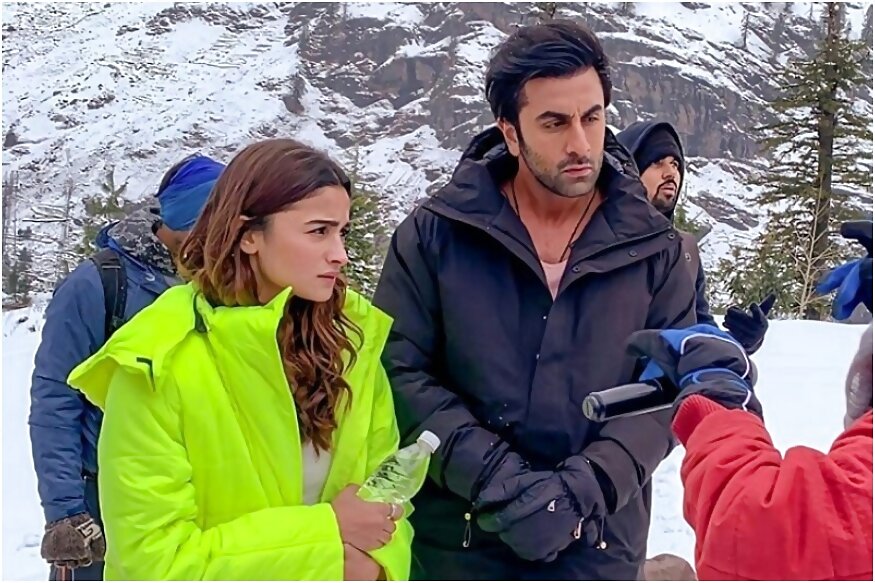
views
The coronavirus lockdown has brought the entertainment industry to a complete and grinding standstill. This is probably for the first time in the history of independent India that there have been zero movie ticket sales at the box office for more than 60 days and counting. No cinema halls are open and their immediate future also looks bleak.
Millions of rupees have been lost due to stalling of shoots and delayed theatrical release of movies. The film industry is looking at a mammoth loss, and in order to comprehensively understand the magnitude of the problem at hand, we caught up with film trade and business analysts. This is what we found.
Estimated Loss:
As per film trade and business analyst Girish Johar's estimate, the Hindi film industry has already lost Rs 1000-1500 crore since the nationwide lockdown was imposed on March 23.
“Strikes and stoppages have happened in the past, but this is the first time that all theatres were shut at all-India scale. So the losses are in multiple thousand crores in the quarter of March, April and May,” says Johar.
In a similar assessment, trade analyst Akshaye Rathi feels that, as an industry, we have been pulled back by many years, and the stakeholders are definitely in a very vulnerable position.
He says, “If we look at the entire entertainment industry, where we talk about our own production, distribution and exhibition sectors, the losses run into thousands of crores. Considering the size of this industry, which is virtually at a cottage scale compared to other bigger industries, the terrible losses will eventually be back-breaking.”

Second Quarter Was Important:
Over the past few years, the lockdown months of March, April and May, have been profitable for films in India. With films like Baahubali: The Conclusion, Avengers: Infinity War and Endgame releasing around this time in 2017, 2018 and 2019 respectively, 2020 was expected to be a successful year too. If the films scheduled for this duration would have had their normal release they would have painted a different box office picture for the season.
“The year in 2019 was a big year for the Indian box office. The annual return was around 15% up than the previous year's 2018 box office, which was a big hike. Even 2020 was estimated to be big, continuing that growth part of 10 to 15% jump in annual returns,” says Johar.
Rathi believes that under normal circumstances, this would have been a superb season for film business. He says, “By now, we would have seen a massive success at pan India level with the release of three films, Sooryavanshi, ’83 and Coolie No 1. All of these had the potential to make a solid impact.”
However, Rathi doesn’t consider this as a loss and believes that the gains made through these films have just been pushed to another quarter.
OTT Vs Box Office:
With production houses pushing the release of their films to a different quarter, the usual ticket window business is facing another threat. It is simultaneously being speculated that a number of projects will directly release on OTT platforms, but this might not be really damaging.
Here’s why?
If the film is a small-scale production, it wouldn’t affect the box office much due to the lesser audience pull. Whereas, big-budget films with popular names will have their reservations and they would like to wait out during the crisis than not giving their target audiences the desired cinema hall experience.
The analysts are of the opinion that it is more so in the interest of stars that the theatre as a medium is kept alive because it gives the actors a validation in terms of box office collection. “Salman Khan or Akshay Kumar or Ajay Devgn or Rajinikanth or Ajith and Vijay, they won’t be half the stars in absence of the cinema hall euphoria,” says Rathi.

(Fans gathered to watch Rajinikanth's 'Darbar')
The producers and exhibitors would also not want to disrupt the partnership chain that has existed over 100 years.
“The exhibition sector, which comprises both organised and unorganised sectors with multiplexes and single screens in metros and tier one and tier two towns, realise that they are nothing without the production sector and the latter knows they will collapse without the former,” says Rathi.
Big Vs Small Productions:
While large scale producers may still not contemplate releasing their films on OTT and delay it for a better time, the lockdown is a grave problem for small-scale producers and independent filmmakers who seek loans from funding capitals. Calling this an alarming situation, Johar gives an insight into the production dynamics.
“I have personally termed this as ‘distressed sales’,” he says, explaining, “When a producer put in his own money or has taken loan against his assets, he has an obvious interest to pay to the bank. During this time, when the production has stalled, they still have to pay that interest amount. The government has given certain guidelines on a moratorium but only for the time period, the interest hasn’t been waved off. So the clock is ticking. While big producers can bear this dent, the smaller ones can’t because they don’t have enough means to generate revenues. This is when distressed sales come into the picture and they sell off their work at a much lower rate.”
Recovery Period:
Rathi compares the surge in demand of films to release on OTT platforms to the time when buying satellite rights for a movie became a rage.
“In the past between 2008-12, satellite rights had seen a similar wave that OTT is seeing right now. TV channels were paying a great amount of money to buy a film’s satellite right. Over time, they realised they are overpaying and aren’t able to make profits from it. This led to an unofficial and rational cartel, and again the revenue earnings for a film shifted back to the theatre. It is in the interest of producers to keep the exhibition sector rolling because as of today, box office makes for 65% of a film’s income.” says Rathi.
As per Johar’s estimation, if the theatres reopen in July, with a pent-up demand, they will start functioning full throttle only by September.
“By the end of the year, we’ll lose critical box office premium months. With a loss of Rs 1500 crore, we need another year with at least 20% growth, to just cover up the losses of 2020,” he predicts.
Future Post Lockdown:
Covering losses won’t be the only challenge for the filmmakers. Their next big challenge would be making films on a much-restricted budget. Film business will change a great deal, because in the post COVID-19 scenario, the production cost will go up and there will be a need to rationalise the expenses.

(BTS picture of Ranbir Kapoor and Alia Bhatt while shooting Brahmastra)
“In the context of production and distribution, exhibition and monetisation, the one thing that needs to go out of the window immediately is vanity and the buffered expenses that add nothing in the monetary order,” says Rathi.
Adding to it, Johar says, "There will be greater changes in the cost of production by cutting down the number of people in a traditional shooting unit and looking after additional medical facility requirements."
But he feels that this change in the production setup has to stem from the top. “The actors will have to take substantial cut-offs. However, actors like Akshay Kumar, Shah Rukh, Salman or Aamir Khan, who have their own production houses, can reduce their acting fee to a minimum and adjust the profit share for a viable midway option.”
Johar also sees this as an opportunity for the domestic sector to flourish. He says, “With restricted foreign travel, the filmmakers will get to shoot on domestic locations like Meghalaya, Kerala, Tripura, Mizoram or Himachal, which will bring down the cost manifold.”
Even if the productions are halted, the demand for good content is going up, and that could be the impetus for the filmmakers to look for the alternative ways of providing entertainment.
Follow @News18Movies for more




















Comments
0 comment